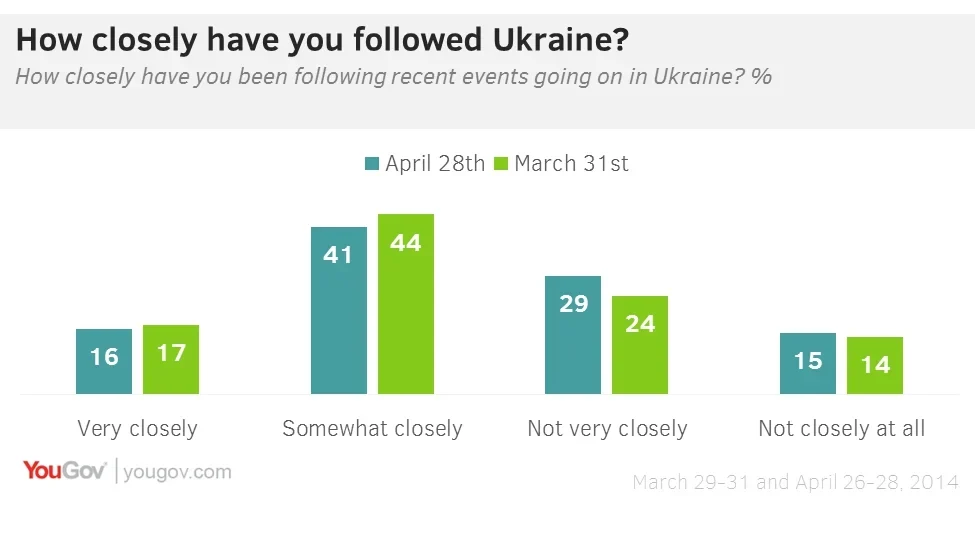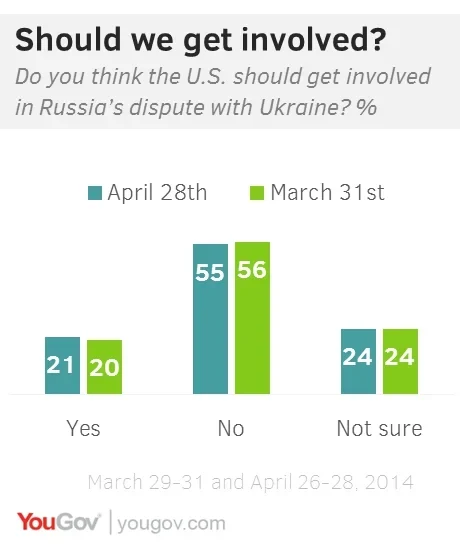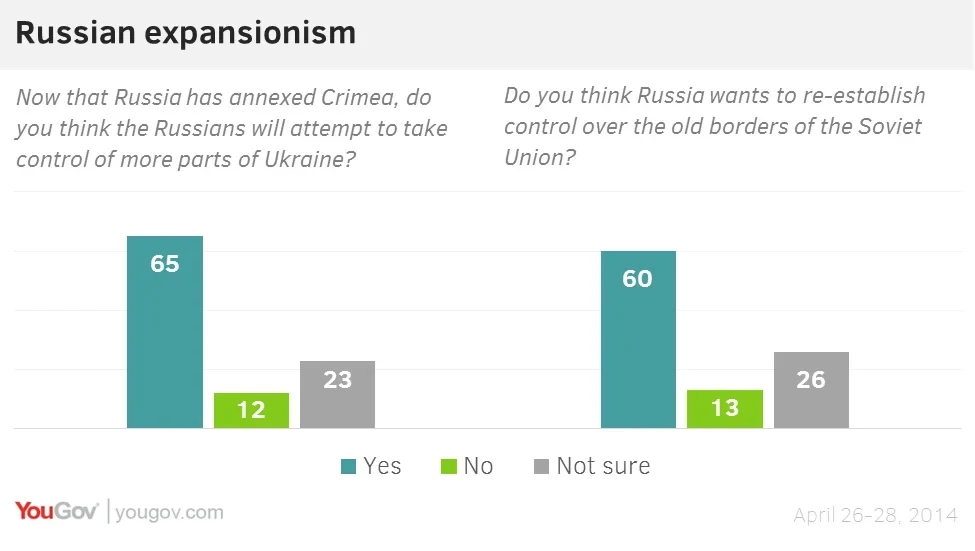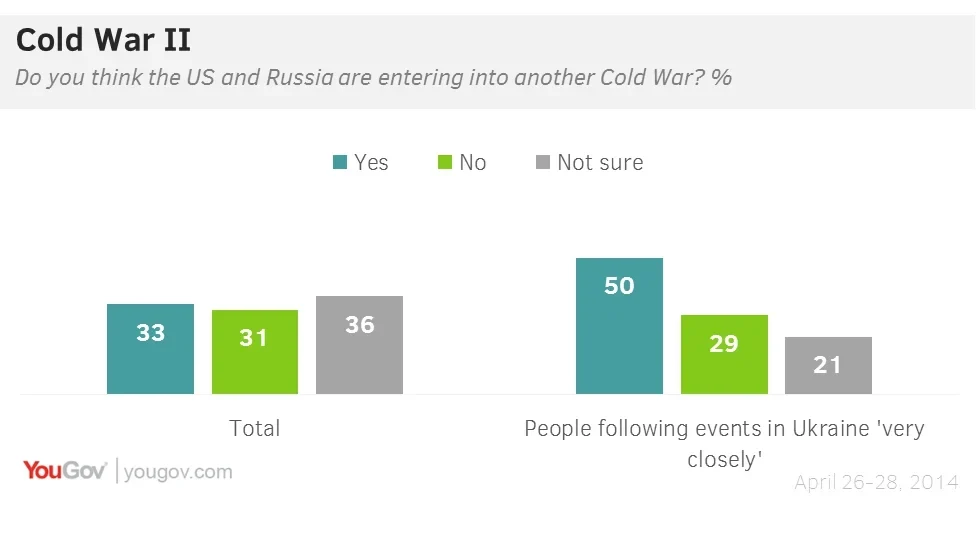One month after Russia annexed Crimea and disturbances began to erupt in eastern Ukraine, American public opinion is still hostile to any deeper US involvement
In the last month, Russia has effectively annexed Crimea from Ukraine, pro-Russian protesters have taken control of a number of cities in the eastern part of the country, the United States and much of Europe has imposed sanctions on Russia, and U.S. relations with Russia have fallen to their worst level since the Cold War ended and the Soviet Union fell apart more than 20 years ago. But in that month, American opinion about Ukraine has changed little.
According to the latest Economist/YouGov Poll, Americans are paying no more attention now than they were a month ago to the crisis, and while most believe Russia hopes for expansion beyond Crimea, there is no more interest in American involvement than there was at the end of March.


Only 16% are following events in Ukraine very closely, while another 41% are paying at least some attention. But there has been no change in attention in the last month. And while attentiveness leads to a greater willingness for the United States to take action to protect Ukraine, most Americans disagree that the United States should become involved. In fact, support for involvement also is no different today than it was a month ago.
Among the small percentage following events in Ukraine very closely, nearly half (48%) favor the U.S. getting involved. 39% oppose involvement.
Americans, including those not paying much attention to the Ukraine crisis, continue to believe that Russia has territorial designs beyond Crimea. Nearly two-thirds think Russia will attempt to take control of more parts of Ukraine, and 61% expect that Russia wants to re-establish control over the old borders of the Soviet Union.

Those beliefs are even more prevalent among those paying close attention.
However, only 40% think the Russian territorial goals go further – into Eastern Europe, a part of the world that, while not part of the Soviet Union, was in its sphere of influence. Many of these former Warsaw Pact countries, unlike Ukraine, are now part of NATO. There are, however, three former SSRs that are also members of NATO: Estonia, Lithuania and Latvia.
It is not surprising that few see relations with Russia today as any better than they were in the days of the Cold War. Just 28% think Russia is friendlier to the United States now than when it was the Soviet Union, and just 22% think the United States is safer today than it was then. But relatively few believe the U.S. and Russia are beginning another Cold War: about one in three think they are, but just as many disagree.

Those paying close attention are more likely to believe that another Cold War may be starting – another reason this group may be more supportive of U.S. action. 49% of those paying very close attention favor the United States devoting more of its military budget to defense against Russia, compared with just 24% of the public overall.
President Barack Obama gets poor marks form the public overall – and from those who want action to help Ukraine. By 43% to 34%, the public overall disapproves of the way he is handling the situation in Ukraine. Among the 21% who want U.S. involvement there, disapproval also outweighs approval, 52% to 42%.
While Republicans are more likely that Democrats to act in Ukraine, half of Republicans oppose involvement.
Perhaps the President should be pleased that he has convinced more Americans of his position about Russia. Near the end of March, just before an Economist/YouGov Poll was conducted, President Obama described Russia as a “regional power,” and not a global one. In that late March poll, Americans narrowly disagreed. Now, a month later, they are more likely to agree.

Those paying close attention are even more likely to agree with the President. Half of them call Russia only a “regional power.”
Image: Getty
Full results can be found here.
Economist/YouGov poll archives can be found here.








